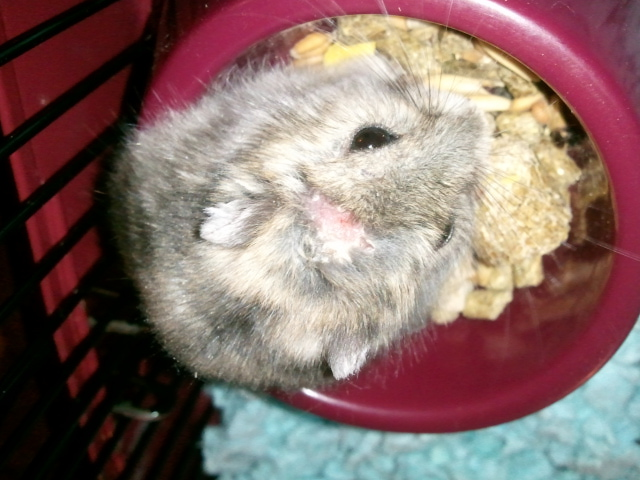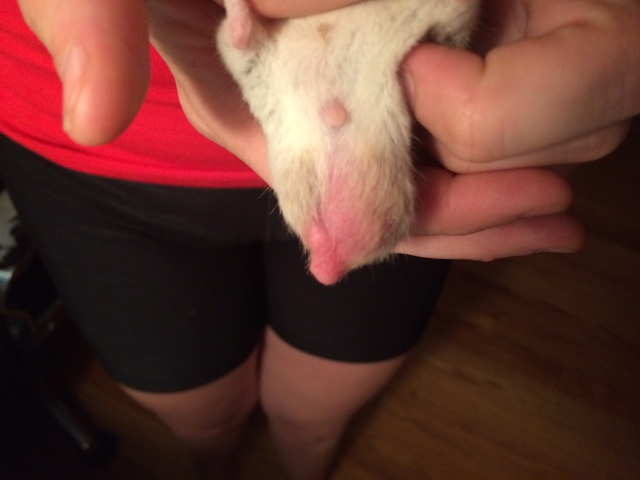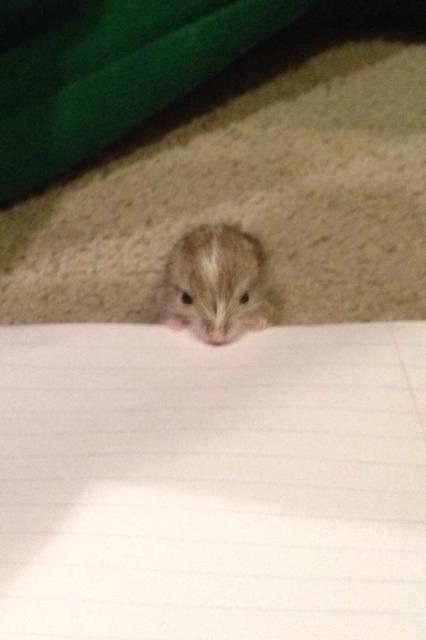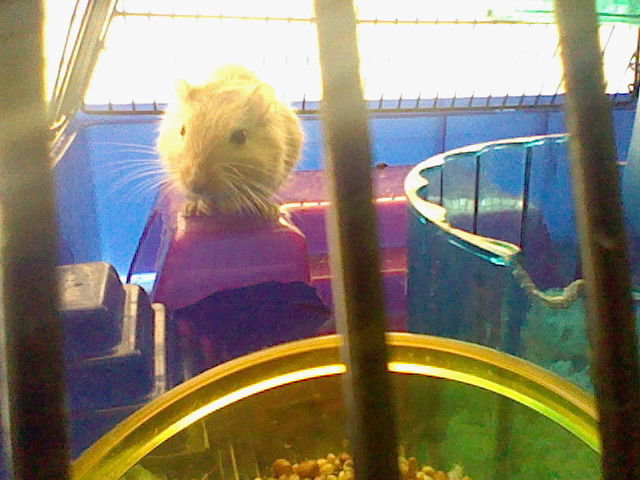QuestionI have a Campbell's dwarf hamster (Rosie) and recently she has lost
most of the hair around her nose and eyes. I am concerned about
this. I checked a couple of websites and they said this might be
mites, but I didn't see any on her when I checked.
Also, I got her a little over a week ago and just recently she has
been drinking more and urinating more. I've read this might mean
she's diabetic, but I'm not sure how to tell. Thanks for any help
you can give.
AnswerHi Sara.
Excessive drinking, lethargy and strangely enough, excersize are all strong indications of diabetes in the dwarf hamsters. Alopecia may also be as well, although that usually has more to do with thyroid problems if it is a physiological problem and not a parasitical one. The demodex mites are very tiny, live in the actual hair follicle and skin, and cannot be seen without the use of a microscope, so I wouldn't rule demodex mites out as the cause of her hair loss just yet. In fact, it would seem more likely to be demodex mites to me, because demodex mites are rarely seen as a problem in themselves. Many hamsters harbor these mites with no ill effects of any kind.. until their immune system is overwhelmed with another illness (like kidney failure or diabetes), at which time the mites take advantage of the supressed immune system to multiply faster than they normally would, and then you start seeing the hair loss. So when you see hair loss and suspect mites, but do not see any, suspect demodex; and if you suspect demodex, there is almost always another problem going on besides.
Unfortunatey the only way to diagnose your dwarf as having diabetes positively would be to take her to a veterinarian and have her blood sugar levels tested.
If you bought your dwarf hamster from a private breeder, you should contact the breeder and let him or her know that you suspect your hamster of having diabetes, which is a genetic disease. This way they can remove Rosie's parents and any littermates from the breeding program, and possibly track back where it came from. If you got her from a pet store, you could still call to let them know, but I doubt they'd care, or even change their distributor, but they might. Some smaller, privately owned pet stores might do their own breeding or buy stock from a private breeder, and the information could be valuable to them.
I hope everything turns out okay! Feel free to ask me if you have any other questions.

 Winter White Hamster Bald spot
Question
Bald spot Flash Bald Spot No Flash
Winter White Hamster Bald spot
Question
Bald spot Flash Bald Spot No Flash
 hamster fight
Question
hamsters
i already have 2 syrian hamsters (bot
hamster fight
Question
hamsters
i already have 2 syrian hamsters (bot
 Male Chinese Dwarf Hamster - Retracted testicle??
Question
Testicle
Hi Sheila!
I have a question.
Male Chinese Dwarf Hamster - Retracted testicle??
Question
Testicle
Hi Sheila!
I have a question.
 orphaned gerbil =(
QuestionQUESTION: Hi Sheila,
My daughters English class
orphaned gerbil =(
QuestionQUESTION: Hi Sheila,
My daughters English class
 Gerbil Problem
Question
My Gerbil
I have a gerbil that is a tannish co
Gerbil Problem
Question
My Gerbil
I have a gerbil that is a tannish co